nlopchantamang.com
Employers Double Down on Mental Health
Ethan Brooks
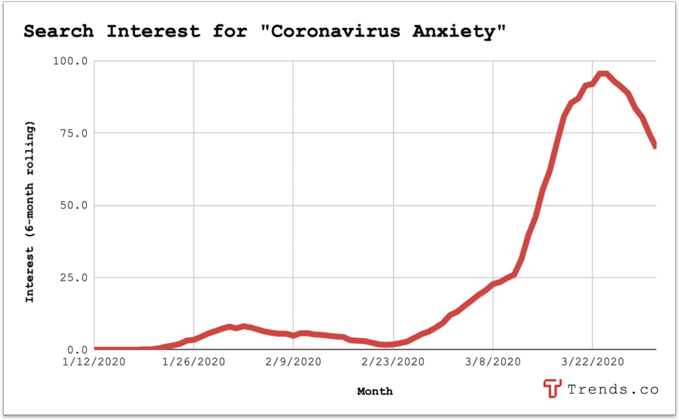
The Signal: Mental wellbeing is increasingly on the minds of employers. Mentions of mental and behavioral health hit an all-time high in Q4 earnings calls last year, according to CB Insights. More than 80% of surveyed employers (including dozens of Fortune 500 and Fortune 100 companies) plan to offer virtual mental-health services to their employees in 2020, with that figure rising to 95% by 2022.
Anxiety and other mental-health challenges have been on the rise over the last decade, with 1 in 5 US adults facing some kind of mental-health issue in any given year. Research shows that 62% of missed work days can be attributed to mental-health conditions, with unwell workers costing companies $2.2T in lost productivity each year in the US alone.
These statistics were all pre-COVID, the pandemic that’s given us a wealth of new things to worry about, like record-high unemployment.
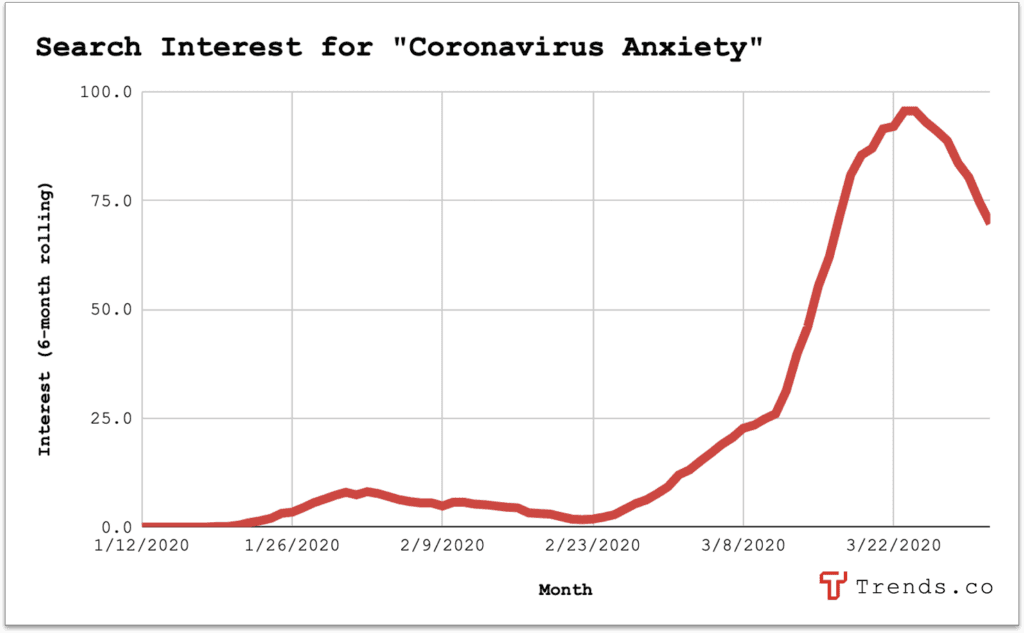
Against this backdrop, mental-health startups have climbed into the spotlight. Companies like Starbucks are using Lyra Health to offer therapy sessions to their 220k employees, and Headspace recently reported a 100% increase in corporate clients in the wake of COVID-19.
The Opportunity: Mental health is an evolving problem, with evolving solutions. As the landscape continues to change, employers will likely continue to expand the services they offer in this area. People looking to get involved may find opportunity in the following areas:
App Development: People are hungry for tools to help improve their mental and emotional wellbeing. Five mental wellness companies -- Calm, Ayana, Lyra Health, Maven, and Everfi -- made Fast Company’s list of the most innovative companies in 2020. And data compiled by CB Insights shows more than 30 startups dealing with mental wellness have led funding rounds so far this year, with deals totaling $543m.
It’s not all about meditation, either. Many things affect the mental wellbeing of employees, and the top 5 deals this year show that needs are diverse, ranging from pain management (Hinge Health) to telepsychology (KRY) to women’s health (Maven) and more.

While many of these are based in the US, mental health is universal, and founders may find a need for language- or country-specific versions of the above.
A 2017 report by Chestnut Global Partners revealed even more opportunities, showing that aside from stress, employees worldwide often seek help with marital and relationship problems, child behavioral issues, and grief, among others. While Calm and Headspace have been battling for control of the stress management market for years, many of these other topics have no clear leader, especially when it comes to options offered by employers.

While needs are diverse, many solutions tend to focus on one or both of the following:
- Cognitive Behavioral Training (CBT): In which a user is guided through learning and resources via a self-service app (Calm, Headspace, Hinge Health, Meru, QuitGenius). Some, like Hinge Health and Meru, couple their app with hardware -- like posture or heart-rate variability sensors -- to create a unique value prop.
- Telemedicine: In which an app is used to connect a patient in need with a range of professional services from psychiatrists to addiction counselors (TalkSpace, KRY, Ayana, PursueCare).
The mental-health space is still relatively uncrowded, too. Stephen Hays, founder of What If Ventures (which invests exclusively in mental-health startups) wrote earlier this year that there were still less than 1k such companies worldwide, roughly half the number we found in our report on the emerging sleep industry.
Where does Hays see untapped potential in the market? "Measuring and testing -- the hard tech of mental health," he said. "I see a lot of meditation apps, I see a lot of find-a-therapist, but the team that figures out the biomarkers for measuring mental health is going to change everything."
Pricing strategies vary among top providers, but one key to landing corporate clients is the ability to quantify your impact, something Headspace has done quite well.
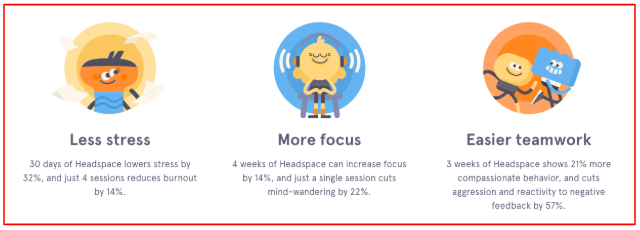
Increasing Proactivity & Penetration: Traditionally, employers offered Employee Assistance Programs (EAPs) to help employees with mental wellness outside of work. EAPs suffer from 2 major problems: lack of Penetration & Proactivity.
- Penetration: A recent survey showed that while 93% of employers said they offered a mental health EAP, only 38% of employees knew about them, and only 5-10% use them.
- Proactivity: Employees typically only use an EAP once they get to a crisis point, even though their work and happiness are affected long before that.
For these reasons, there’s a growing trend toward proactive employee education. Gloria Chan Packer, lead advisor at Recalibrate, has noticed this trend -- her company offers everything from group meditations to private mindfulness coaching to employees at Atlassian, McKinsey & Co., Salesforce, Box, and others.
Help for Telespychologists: In a recent Signal we explored how the coronavirus pandemic has led to a spike in telemedicine. Providers in the mental-health space have been particularly impacted, as isolation poses a severe risk to many of their patients.
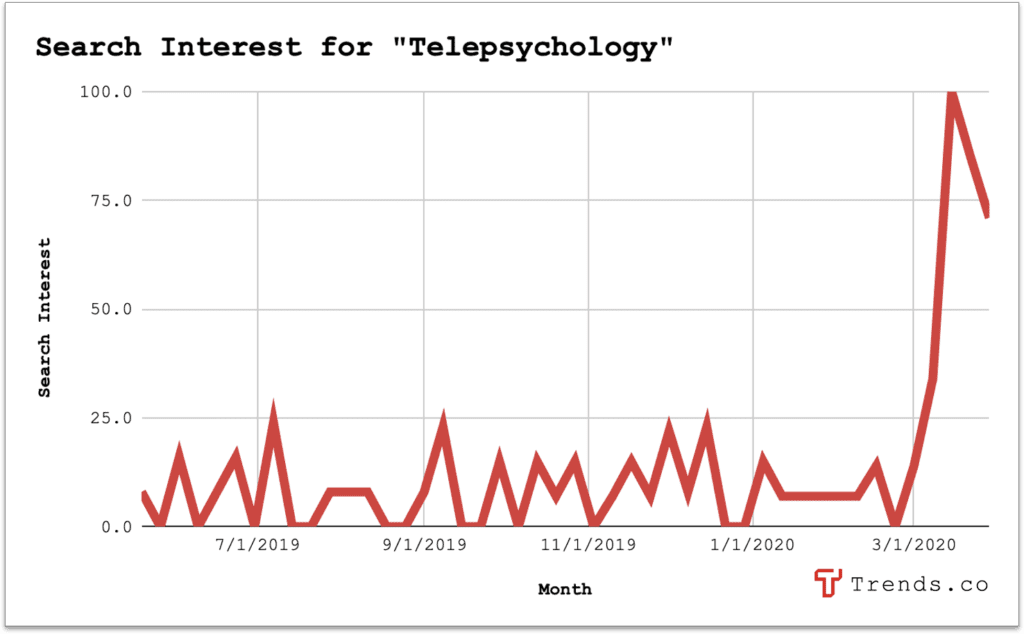
The pandemic is life-changing for most people. But for those with anxiety disorders, it’s especially challenging, as patient worries mount, and social distancing limits their treatment options, psychologists are struggling to adapt.
"It’s different than having somebody in the office," Mary Alvord told The Los Angeles Times, "I only see you from the waist up… I don’t see you walking. I don’t see all the full range of gestures."
Alvord, who has begun teaching fellow psychologists how to transition their practices online, reports thousands have signed up for her webinars showing a clear need for those who can offer coaching, marketing services, and business tools specifically for telepsychologists.
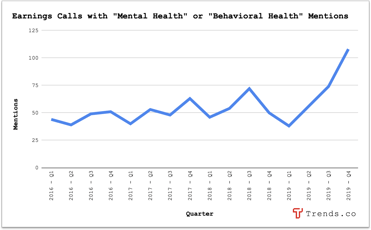
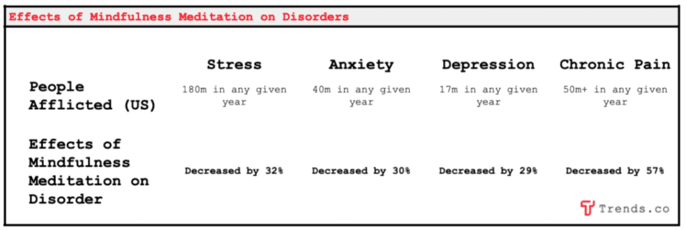
Leave a Comment